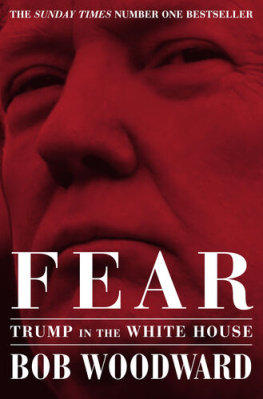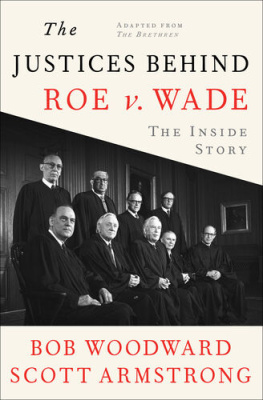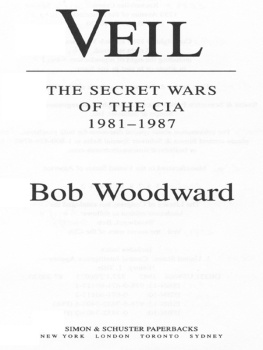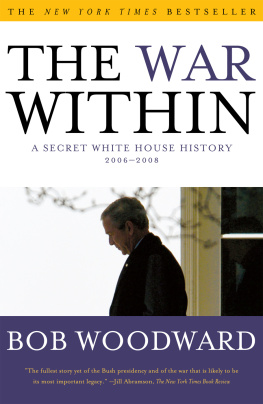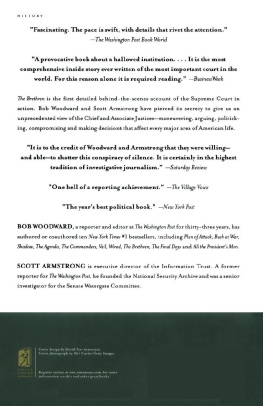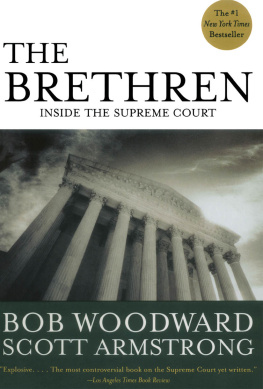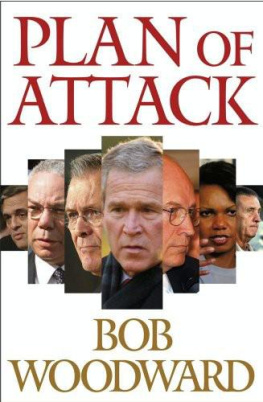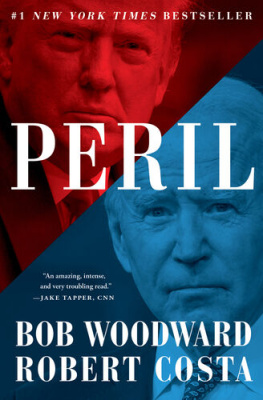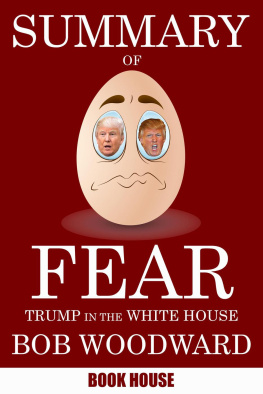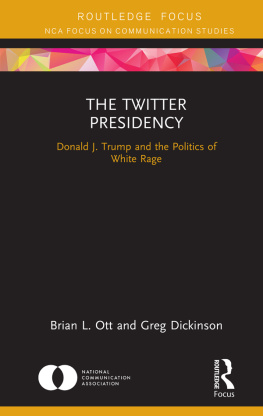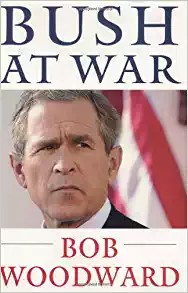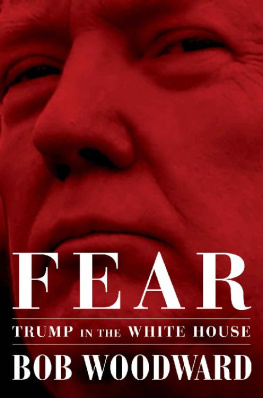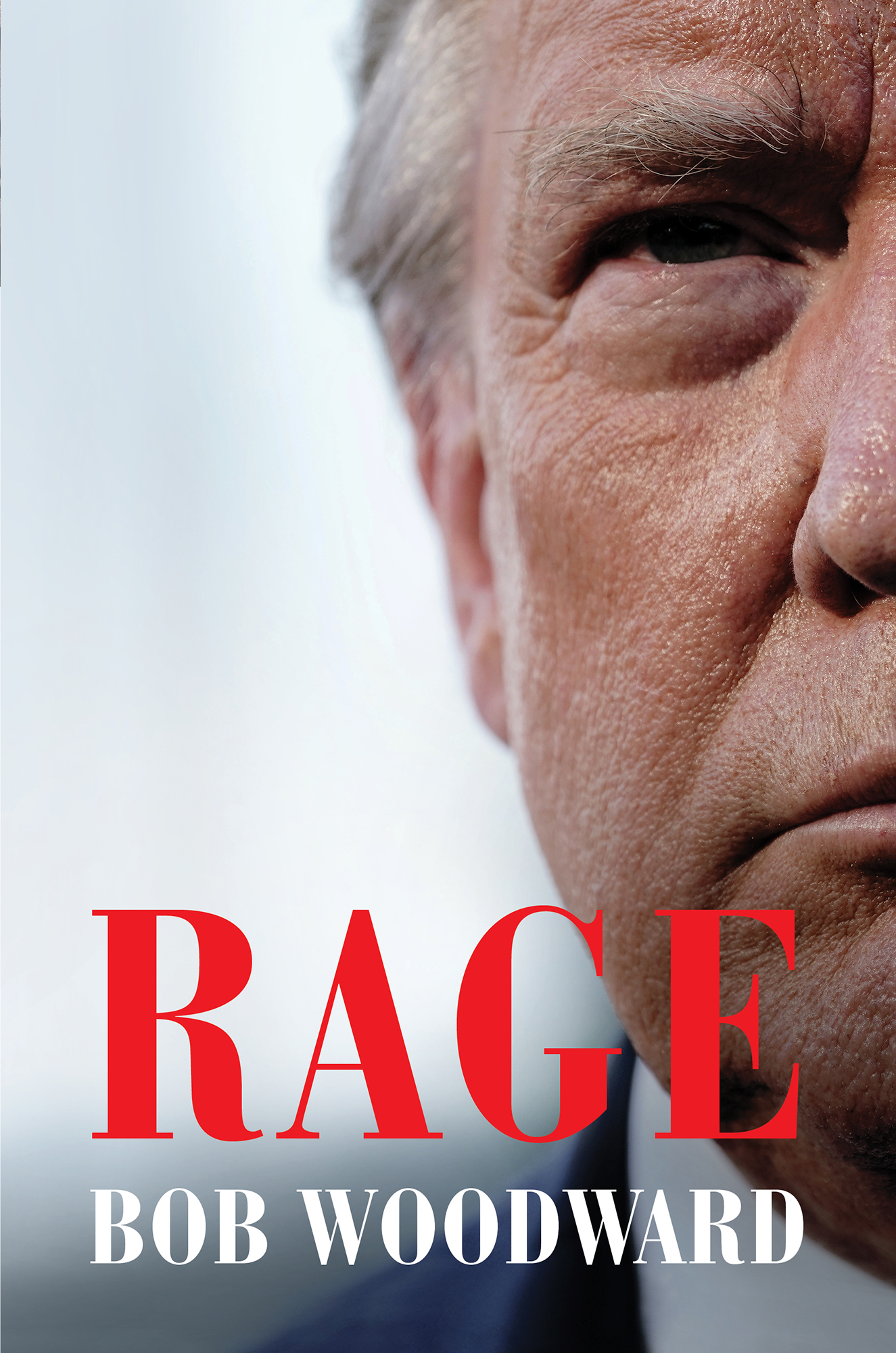Contents
Guide
To Alice Mayhew, who edited every one of my 19 previous books over 44 years and gave me a lifetime of wisdom and love, and to Carolyn Reidy, our revered and steady captain at Simon & Schuster. I miss them both.
And to the next generation:
Diana Woodward
Tali Woodward
son-in-law Gabe Roth
grandchildren Zadie and Theo
Authors Personal Note
Evelyn M. Duffy has now assisted me on six books over 13 years on four presidents. A remarkable woman of depth and integrity, she believes that everyone should be held accountable, including and especially me. She is an organizational genius who effectively has acquired multiple PhDs in the presidency, government, journalism and modern life. She insisted that everyone in this book get the fairest treatment possible, including President Trump. She kept her eyes on that prize and worked tirelessly to see it fulfilled. Cheerful and authentic, she has the stamina of half a dozen. As the nominal boss, I realize that her level of engagement is not something that can be required or purchased. It is only something she could give. She did. For Evelyn, it is a way of life. Once again she served as full collaborator and in the spiritand with the level of effortof a coauthor.
Steve Reilly came to work with Evelyn and myself just under a year ago. He is one of the hardest workers Ive ever seen. Do you mind if I come in and work Sunday? was a common request. Okay, Id say, without hesitation. He gives new life and meaning to the archetypal image of the dogged, relentless investigative reporter staying all night in the newsroom. He has a gentle and pleasant demeanor, and inwardly is tough as steel. He insists on verification for everything; no fact or nuance goes unchecked. Steve spent five years on USA Todays investigative team and was a finalist for the 2017 Pulitzer Prize for Investigative Reporting. He has innate integrity, kindness and creativity. He is a true digger and searcher of the truth, and I thank him for his immeasurable contributions to this book. He has a great future in journalism, the profession I know he loves.
I bring rage out. I do bring rage out. I always have. I dont know if thats an asset or a liability, but whatever it is, I do.
Presidential candidate Donald J. Trump in an interview with Bob Woodward and Robert Costa on March 31, 2016, at the Old Post Office Pavilion, Trump International Hotel, Washington, D.C.
This is when you said to us: I bring out rage in people. I bring rage out. I always have. I dont know if its an asset or a liability. But whatever it is, I do. Is that true?
Yes, Trump said. Sometimes. I do more things than other people are able to get done. And that, sometimes, can make my opponents unhappy. They view me differently than they view other presidents. A lot of other presidents that youve covered didnt get a lot done, Bob.
President Donald J. Trump in an interview with Bob Woodward for this book, June 22, 2020.
PROLOGUE

D uring the Top Secret Presidents Daily Brief the afternoon of Tuesday, January 28, 2020, discussion in the Oval Office turned to a mysterious pneumonia-like virus outbreak in China. Public health officials and President Trump himself were telling the public the virus was low-risk for the United States.
This will be the biggest national security threat you face in your presidency, Robert OBrien, the national security adviser, told Trump, expressing a jarring, contrarian view as deliberately and as strongly as possible.
Trumps head popped up. He asked the intelligence PDB briefer, Beth Sanner, several questions. She said China was worried, and the intelligence community was monitoring it, but it looked like this would not be anything nearly as serious as the deadly 2003 Severe Acute Respiratory Syndrome (SARS) outbreak.
This is going to be the roughest thing you face, persisted OBrien from his seat around the Resolute Desk, well aware that Trump was only midway through his impeachment trial in the Senate, which had begun twelve days earlier and was consuming his attention. OBrien believed the national security adviser had to try to see around corners, a duty to warn of an impending disaster. And this problem was urgent, not some geopolitical issue that might happen three years down the road. This virus could develop very quickly in the United States.
OBrien, 53, a lawyer, author and former international hostage negotiator, was Trumps fourth national security adviser. He had been in the key post only four months and did not consider himself a pound-your-fist-on-the-table kind of person, but he felt passionate that the outbreak was a real threat.
I agree with that conclusion, said Matt Pottinger, the deputy national security adviser, from a couch further back in the Oval Office. Trump knew Pottinger, 46, who had been with the National Security Council staff for three years since the beginning of the Trump presidency, was uniquely, almost perfectly, qualified to deliver such an assessment.
His warning was authoritative and carried great weight. Pottinger had lived in China seven years and been a Wall Street Journal reporter there during the SARS outbreak. A China scholar, he spoke fluent Mandarin.
Affable, profane and a workaholic, Pottinger also was a decorated former Marine intelligence officer, a job that culminated in coauthoring an influential report about the inadequacies of U.S. intelligence agencies.
Pottinger knew firsthand that the Chinese were masters at concealing trouble and covering it up. He had written over 30 stories about SARS and how the Chinese had intentionally withheld information for months about its seriousness and vastly understated its spread, a mishandling that allowed SARS to move around the globe. The Journal had submitted his work for a Pulitzer Prize.
What do you know? Trump asked Pottinger.
For the last four days, Pottinger said he had been working the phones calling doctors in China and Hong Kong he had maintained contact with and who understood the science. Hed also been reading Chinese social media.
Is this going to be as bad as 03? he had asked one of his contacts in China.
Dont think SARS 2003, the expert replied. Think influenza pandemic 1918.
Pottinger said he had been floored. The so-called Spanish Flu pandemic of 1918 killed an estimated 50 million people worldwide with about 675,000 deaths in the United States.
Why do you think it will be worse than 2003? asked the president.
Pottingers contacts told him three factors were dramatically accelerating the transmission of the new disease. Contrary to official hedged reports from the Chinese government, people were getting the disease easily from other people, not just animals; this is called human-to-human spread. He had just learned that morning it was being spread by people who didnt show any symptoms; this is called asymptomatic spread. His best, most authoritative source said 50 percent were infected but showed no symptoms. This meant a once-in-a-lifetime health emergency, a virus out of control with a vast amount of the spread not immediately detectable. And it had already traveled far from Wuhan, China, where the outbreak apparently began. To Pottinger, these were the three alarms of a three-alarm fire.
Most troubling, Pottinger said, the Chinese had essentially quarantined Wuhan, a city of 11 million people, larger than any American city. People could not travel within China, say from Wuhan to Beijing. But they had not cut off travel from China to the rest of the world, including the United States. That meant a highly infectious and devastating virus was probably already silently streaming into the U.S.

